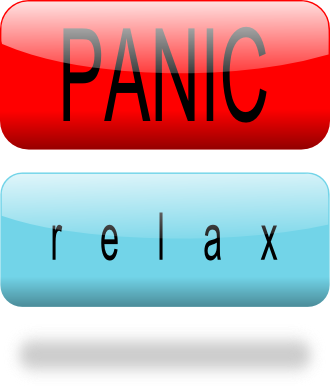Address
39 Fen End Lane.
Spalding, Lincs. PE12 6AD.
If I said to you the word ‘Vix’, chances are you would be thinking that I was talking about ‘Vaporub’. However, in this case I am referring to one way in which we measure how ‘fearful’ financial markets are.
Not that Vicks Vaporub doesn’t have its uses in life. Aside from the obvious one of relieving nasal congestion it also serves as a reasonable clue to the health of a marriage. If you are happy sharing a bed with a sniffling partner covered in the stuff, chances are you’re both onto a good thing.

To give it its full title, VIX refers to the Chicago Board Options Exchange Market Volatility Index. That sounds very grand and a bit complicated, but as ever, I’ll try to break it down into a simple concept that is easier to understand. And I’ll leave most of the mathematics to those of you who want to contact me directly for a much fuller explanation.
The ‘options’ referred to in the title are essentially just price guarantees that can be traded for a fee. Some allow you to guarantee the price at which you can buy the stock index – others give you a guarantee to sell at a certain price.
And it’s the fee, or premium that you have to pay that gives us a clue to how relaxed or fearful the overall stock market is.
Why? Well if I am going to provide you with any form of guarantee, whether it’s on a household good or perhaps the insurance on a car, I need to work out how likely it is that I will have to pay out that guarantee and whether, on average, it will cost more that the fees I am charging.
When it comes to a stock index, the chance that I will have to pay out depends largely on one factor, how volatile that stock market is, or more importantly, how volatile it is expected to become. The more wildly it is moving around, the more likely that I will have to pay out on the guarantee and therefore the more I want to charge upfront for providing it.
And that is what the VIX attempts to do. It looks at the prices being charged in the market for a variety of options or price guarantees and comes up with a value that tells us how volatile those prices are telling us the stock index is expected to be. And that number is a percentage of the current stock index price.
A figure of 20% means that there is almost a two thirds chance that the market will remain in a range up or down 20% in the next year. A lower figure would mean that expectations are for a much calmer market, a higher figure for a more volatile market.
And at the moment the figure is a mere 11%, which is very low – the lowest level in fact since the start of the financial crisis in 2007. Then it was a spectacular misjudgement given what happened over the next two years.
But are current levels justified?
There are all sorts of indicators that are suggesting the financial markets are having one enormous ‘goldfish’ moment where they have completely forgotten the last business cycle. And the reason for this is extreme confidence in the actions of the central banks.
I am nowhere near as sure as to the level of their competence, but low expectations of volatility can last for a long time – you know that it will increase but it is very hard to say when. As I’ve mentioned several times, it suggests it’s time to be a bit more cautious. It also means that I am finally prepared to look at some defensive structured products, but that will be on an individual client basis.
And I repeat that if you’re into natural logs (mathematical not fire wood), rules of dispersion, letters of the Greek alphabet and want to pick the brains of a volatility watcher since 1985 – I’d be happy to answer your questions.
It’s all part of the service.
Answering your questions is all part of the service, and living eight years in Asia gives you an insight into great service. Here is a short topical story about the service I received during the 1990 Italian World Cup, while staying at the Oriental Hotel, Bangkok.
My wife and I were there to spend a delayed honeymoon in the splendour of this fine hotel. Our original honeymoon was just a couple of days in Bournemouth and as exotic as that location is, we felt we deserved another break.
The problem was it was during the World Cup and given the time difference between Bangkok and Rome I needed to know the Oriental Hotel was putting the games on in the early hours.
I needn’t have worried. The Thais are fanatical about football. And I realised this when on the day of England’s first game against Ireland I entered the designated room at the hotel.
There was a huge projector screen at one end and about one hundred chairs in front of it and about the same number of staff standing around the edges of the room that refused to sit down even when I invited them to – and I was the only hotel guest there.
It was a rather bizarre environment. As the game started none of the staff made a sound, so nor did I. Then a senior looking member of staff came over to me and said, ‘excuse me sir, are you English or Irish?’
I replied, ‘English’ and he returned to the other staff to let them know.
The next time England got the ball, they all cheered, and when Lineker scored after 8 minutes I could have been on the terraces. It finished 1-1, but believe me when I tell you it’s hard to match Asia for service!